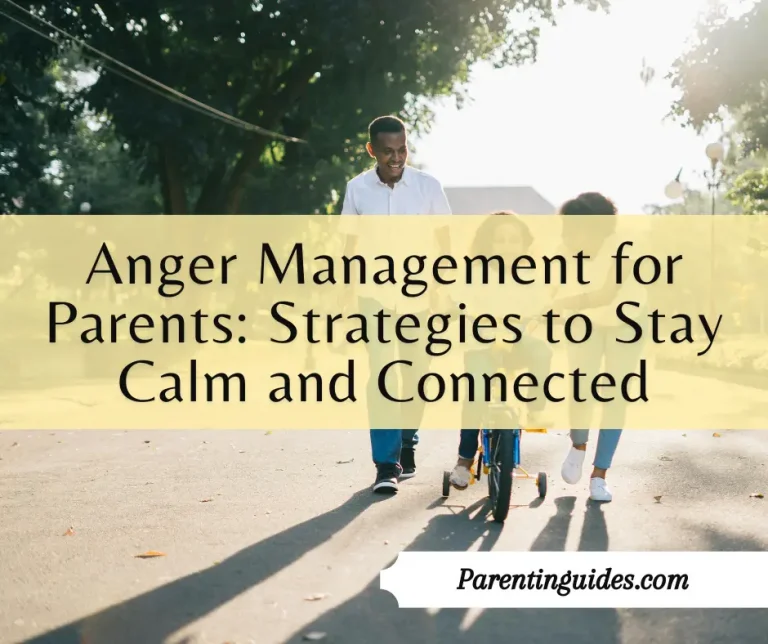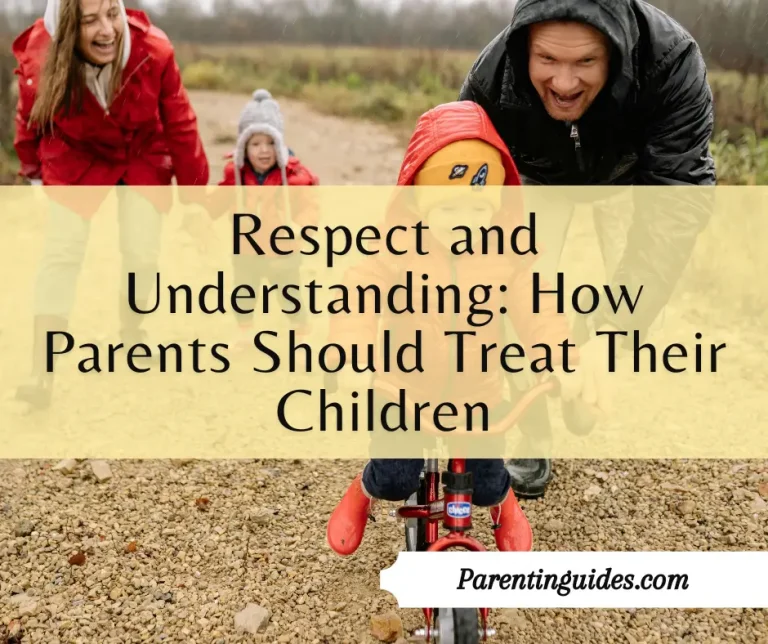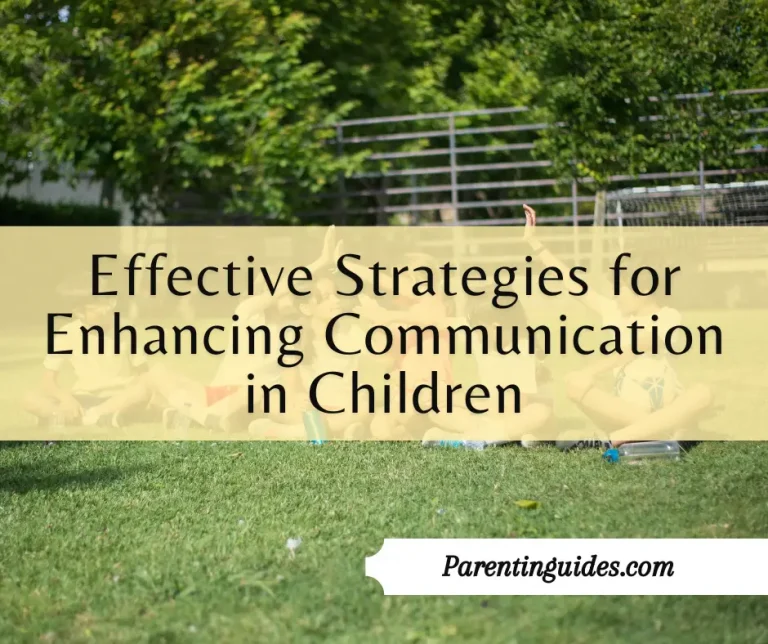Parenting can feel like walking a tightrope. Balancing discipline and love is challenging, yet essential. Consistent parenting is the key to achieving this balance. It fosters stability and trust, allowing children to thrive emotionally and behaviorally. As a mother, I have experienced firsthand the transformative power of consistent parenting.
When my husband and I first became parents, we often felt overwhelmed. We struggled to find a balance between being too strict and too lenient. Our inconsistency led to confusion and frustration for our children. We realized we needed a change. Embracing consistent parenting was not easy, but it was worth it. We saw positive changes in our children’s behavior and emotional well-being.
Consistent parenting is about setting clear expectations and following through with them. It’s about being predictable and reliable. Children need to know what to expect from their parents. This predictability helps them feel safe and secure. My husband and I worked hard to establish this consistency in our home. We set clear rules and ensured we both enforced them. This unified approach made a significant difference.
In this article, I will share our experiences and the strategies that worked for us. I will discuss the importance of consistent parenting, how to establish clear rules and expectations, balance discipline and love, deal with challenges, and build a supportive parenting partnership. Each section will include personal anecdotes to illustrate the principles of consistent parenting. I hope to provide practical advice that can help other parents create a harmonious and loving environment for their children.

Understanding Consistent Parenting
What is Consistent Parenting?
Consistent parenting is about being reliable and predictable in how you guide and discipline your children. It means setting clear rules and following through with them. It also helps children know what to expect from their parents, which makes them feel safe and understood.
In the beginning, my husband and I had a hard time grasping the full idea of consistent parenting. We’d set rules but sometimes forgot to enforce them. One day, we would be firm about bedtime, and the next day, we’d let our kids stay up late. This inconsistency confused our children. They didn’t know what to expect from us, and this led to more arguments and frustration.
We realized that consistent parenting was more than just setting rules; it was about sticking to them. We started by clearly defining what we expected from our children and making sure both of us were on the same page. For instance, we agreed that screen time would be limited to one hour each day, and we stuck to it. This consistency helped our kids understand and follow the rules better.
Consistent parenting is crucial because it builds a foundation of trust and stability. When children know that their parents will respond the same way to their behavior, they feel more secure. They understand that their actions have predictable consequences, which helps them learn and grow.
Benefits of Consistent Parenting
One major benefit of consistent parenting is that it provides emotional stability for children. When my husband and I started being consistent with our rules, we noticed our children became more confident. They felt safe knowing that our responses were predictable.
For example, we set up a reward system for good behavior. When our kids followed the rules, they earned small rewards. This consistency in recognizing good behavior helped them understand what we expected from them. We saw a positive change in their behavior and a stronger bond between us.
Another benefit of consistent parenting is that it builds trust and respect. Children learn to respect their parents when they see that the rules are fair and consistently applied. We found that when we were consistent, our kids were more likely to listen to us and follow the rules. They respected us more because they knew we meant what we said.
We also noticed that our children started to approach us more openly about their concerns and feelings. The stable environment we created through consistent parenting allowed them to express themselves without fear of unpredictable reactions from us.
Common Misconceptions
There are many misconceptions about consistent parenting. One common myth is that being consistent means being overly strict. People often think that consistency means being rigid and unyielding. In reality, consistent parenting is about finding a balance between being firm and being loving.
For example, when our children make mistakes, we would gently correct them but also offer support. We learned that consistency doesn’t mean bending the rules but rather applying them fairly and thoughtfully.
Another misconception is that consistent parenting is easy. It’s not. There were many times when we felt exhausted and tempted to let things slide. However, we realized that staying consistent was key to our parenting success. It took effort and commitment, but it was worth it.
Through our experiences, we learned that consistent parenting means being reliable and loving, not harsh. We had to adapt our approach, staying firm but also showing warmth. It was a learning process, but finding this balance helped us become better parents.

Establishing Clear Rules and Expectations
Setting Family Rules
Setting clear, understandable rules is crucial to inconsistent parenting. Children need to know what is expected of them. Clear rules provide structure and help children understand boundaries.
In our household, we established a few key rules that everyone follows. For example, we have a rule about screen time. Our children are allowed one hour of screen time each day. This rule is clear and easy for them to understand. We also have a rule about chores. Each child has specific chores they must complete daily. These rules help keep our home running smoothly and teach our children responsibility.
When we first introduced these rules, there was some resistance. However, we explained the importance of each rule and how it benefits the whole family. Over time, our children began to understand and follow the rules more consistently. Setting these rules improved our family dynamics significantly. There were fewer arguments and more cooperation.
By establishing clear rules, we created a predictable environment for our children. They knew what was expected of them and what the consequences would be if they broke the rules. This consistency made them feel secure and helped them develop good habits.
Communicating Expectations
Effective communication is a key part of consistent parenting. Children need to understand what is expected of them and why. Communicating expectations clearly helps avoid misunderstandings and ensures everyone is on the same page.
My husband and I found that having regular family meetings was a great way to communicate expectations. During these meetings, we would discuss any new rules or changes to existing rules. We encouraged our children to ask questions and share their thoughts. This open communication helped them feel involved and respected.
One technique that worked well for us was using simple, clear language. Instead of giving long explanations, we kept our instructions short and to the point. For example, when discussing bedtime, we would say, “Bedtime is at 8 PM. That means you need to be in bed with the lights off by 8 PM.” This clarity helped our children remember and follow the rules.
We also found it helpful to repeat our expectations regularly. Repetition reinforced the rules and made it easier for our children to remember them. For instance, every evening before dinner, we would remind our kids of their chores. This consistency in communication ensured that they knew what was expected and could meet those expectations.
Consistency in Enforcement
Maintaining consistency in enforcing rules is essential to inconsistent parenting. Children need to see that rules are applied fairly and consistently. This helps them understand the importance of following the rules.
Enforcing rules consistently was a challenge for us at first. There were times when we were tempted to let things slide, especially when we were tired or busy. However, we realized that being inconsistent only led to more problems. Our children would become confused and start testing boundaries more often.
To maintain consistency, my husband and I made a pact to support each other in enforcing the rules. If one of us noticed the other being lenient, we would gently remind each other of our commitment to consistent parenting. This teamwork made a big difference.
We also learned to deal with setbacks in a constructive way. When our children broke the rules, we addressed the behavior immediately. We explained what they did wrong and the consequences of their actions. We made sure the consequences were fair and related to the rule they broke. For example, if they missed their chore, they would have to do an extra chore the next day.
Over time, our consistent enforcement of rules led to better behavior from our children. They knew we meant what we said and understood that there were real consequences for their actions. This consistency helped them feel secure and taught them the importance of following rules.

Balancing Discipline and Love
Positive Reinforcement
Positive reinforcement is crucial to consistent parenting. It means rewarding good behavior to encourage children to repeat it. My husband and I found that praising our children when they did something right made a big difference. For example, we would give them a small treat or extra playtime when they completed their chores without being reminded.
We also used a reward chart. Each time our kids followed a rule, they earned a sticker. After collecting a certain number of stickers, they could choose a reward, like a movie night. This method of positive reinforcement was effective. It motivated them to follow the rules and made them feel proud of their achievements.
Personal success stories with positive reinforcement are numerous. One time, our youngest was struggling with bedtime. We started praising him each night he went to bed on time, and soon, bedtime became a smooth process. This showed us how powerful positive reinforcement can be in consistent parenting.
Constructive Discipline
Constructive discipline means correcting behavior without being harsh. It’s about guiding children to make better choices. In our journey of consistent parenting, we learned that yelling or punishing harshly was not effective. Instead, we used time-outs and calm discussions to address misbehavior.
For instance, when our daughter misbehaved, we would sit her down and explain why her actions were wrong and how she could do better next time. We found that this approach helped her understand the consequences of her actions without feeling scared or resentful.
Balancing discipline with empathy was key. We always made sure to listen to our children’s feelings and explain the reasons behind our rules. One effective strategy was to ask our kids how they felt about the rules and if they had any suggestions. This made them feel valued and respected, which is essential for consistent parenting.
Emotional Support and Affection
Showing love and support is vital to consistent parenting. Children need to feel loved, especially when they are being disciplined. My husband and I always made sure to balance discipline with emotional nurturing. After correcting our children, we would reassure them of our love.
For example, after a time-out, we would hug our child and remind them that we discipline them because we care about their well-being. This helped them understand that discipline and love go hand in hand.
Our personal experiences showed us the importance of showing affection. We made it a point to have regular family bonding time, like reading together before bed or having family game nights. These moments of affection and support helped strengthen our bond and made our children more receptive to our rules.
Balancing discipline with love is the essence of consistent parenting. It creates a nurturing environment where children can learn and grow while feeling secure and valued. By consistently showing both discipline and affection, we created a harmonious family life that benefited everyone.

Dealing with Challenges
Handling Tantrums and Defiance
Handling tantrums and defiance is a big part of consistent parenting. Children will test boundaries, and how we respond is crucial. My husband and I developed strategies to manage these difficult behaviors. We learned to stay calm and consistent. When our child had a tantrum, we made sure not to give in to demands. Instead, we would wait for them to calm down and then talk about what happened.
For instance, our son would often throw tantrums in the store if he didn’t get what he wanted. We remained firm, not giving in to his demands. Over time, he learned that tantrums wouldn’t get him what he wanted. This consistency helped reduce the frequency of his outbursts.
Maintaining calm is key. It’s important to show children that tantrums and defiance don’t change the rules. Through consistent parenting, we showed our children that while their feelings are valid, the rules still stand. This approach helped them understand that boundaries are important and not negotiable through bad behavior.
Adapting to Different Ages and Stages
As children grow, their needs and behaviors change. Adapting our parenting techniques to suit different ages and stages was a learning process. Consistent parenting helped us adjust while maintaining stability. We recognized that what worked for a toddler might not work for a teenager.
When our children were younger, simple rules and immediate consequences worked best. As they grew older, we had to modify our approach. For example, our teenage daughter needed more privacy and autonomy. We adjusted our rules to give her more responsibility while maintaining consistent expectations.
Recognizing developmental needs was crucial. Understanding that a two-year-old’s tantrum differs from a teenager’s defiance helped us respond appropriately. Our experiences taught us that consistent parenting means being flexible while keeping the core principles of predictability and reliability.
Managing Parental Stress
Parenting can be stressful, and managing stress is vital for maintaining consistent parenting. My husband and I realized that taking care of ourselves was just as important as caring for our children. We found techniques to stay calm and composed, even during challenging times.
One effective technique was taking breaks. We made sure to have some time for ourselves, whether it was a quiet walk or reading a book. This self-care helped us recharge and be more patient with our children.
The importance of self-care cannot be overstated. When we were well-rested and calm, we could enforce rules consistently. We also supported each other by sharing parenting duties. If one of us was feeling overwhelmed, the other would step in. This teamwork made a huge difference.
Personal reflections on managing stress also taught us to set realistic expectations. We accepted that we wouldn’t always get it right, and that was okay. Consistent parenting is about the overall pattern, not perfection. By managing our stress, we could provide a stable and loving environment for our children.

Building a Supportive Parenting Partnership
Communication Between Parents
Being on the same page is crucial to consistent parenting. My husband and I realized early on that we needed to communicate effectively to maintain consistency. We made it a point to discuss our parenting strategies and agree on the rules we set for our children. This alignment helped us present a united front to our kids.
To improve our communication, we set aside time each week to talk about any issues or adjustments needed. These meetings were essential for us to stay connected and address any concerns. One time, we disagreed on bedtime rules, but after discussing our viewpoints, we found a compromise that worked for both of us.
Teamwork and communication were key. When we communicated well, our children saw that we were consistent and reliable. This unity reinforced the principles of consistent parenting and made our approach more effective.
Sharing Parenting Responsibilities
Dividing tasks and responsibilities ensures that both parents are involved in consistent parenting. My husband and I divided the daily tasks to share the load evenly. This division of labor prevented burnout and kept us both engaged in our children’s lives.
For example, my husband took charge of morning routines, while I handled bedtime. This clear division helped us manage our time better and provided our children with consistent care from both parents. It also showed our kids that we were equally invested in their upbringing.
Sharing parenting duties also meant supporting each other during tough times. When one of us felt overwhelmed, the other would step in. This support system was crucial in maintaining the consistency we aimed for in our parenting.
Seeking Support and Resources
Seeking external support is important in consistent parenting. There were times when my husband and I felt we needed guidance. We turned to parenting groups and books for advice and support. These resources provided us with new strategies and reassurance that we were on the right path.
For instance, joining a local parenting group allowed us to share our experiences and learn from others facing similar challenges. We also found helpful tips from parenting books that we incorporated into our routines.
Utilizing these resources made a significant difference. They helped us stay informed and motivated. We learned that seeking help is a strength, not a weakness. These external supports reinforced our consistent parenting approach and helped us feel more confident in our roles as parents.

Conclusion
Consistent parenting has truly transformed our family. By setting clear expectations and enforcing them reliably, we have created a stable and loving environment for our children. They have become more secure, confident, and respectful.
Our journey was not always easy. There were many times when we felt tired or overwhelmed. However, the benefits of consistent parenting far outweighed the challenges. We saw positive changes in our children’s behavior and emotional well-being. They knew what to expect from us, which made them feel safe and understood.
The key to consistent parenting is balance. It’s about being firm but also showing unconditional love. By rewarding good behavior and addressing misbehavior constructively, we taught our children valuable lessons. They learned that while there are rules, they are always loved and supported.
Building a supportive parenting partnership with my husband was crucial. By communicating effectively and sharing responsibilities, we reinforced the principles of consistent parenting. Seeking support from external resources also helped us stay informed and motivated.
So, consistent parenting has made our family stronger and happier. It has helped us navigate the challenges of parenting with confidence and grace. I hope our experiences inspire other parents to embrace consistent parenting and see the positive changes it can bring to their families. Remember that consistent parenting is a powerful tool that fosters discipline and unconditional love, creating a harmonious and nurturing home.









